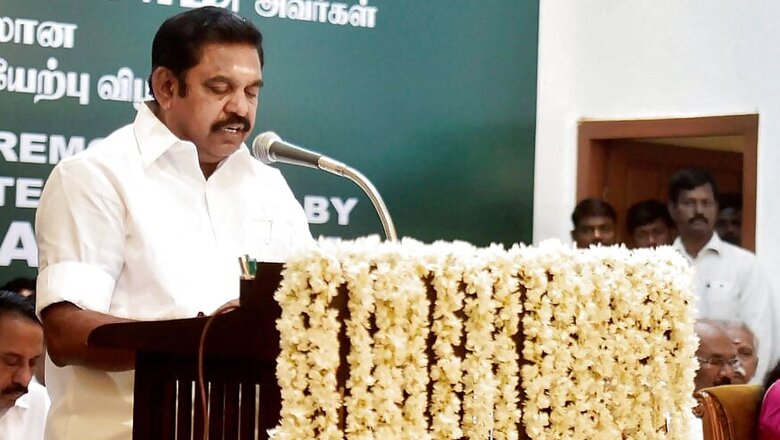
views
Edapadi Palaniswami, the new Tamil Nadu chief minister, has begun in the grand tradition of his mentor J Jayalalithaa by announcing a series of freebies. The question is how he is going to fund it now that the state seems set on the path to prohibition?
Among the first files that EPS signed was to close 500 liquor stores of TASMAC, the state agency that distributes alcohol through its retail outlets. Jayalalithaa’s first decision upon becoming the CM of Tamil Nadu in 2016 was to close 500 liquor shops and reduce their timings.
The other orders that EPS issued on Monday are all AIADMK manifesto promises that propelled the party to power for a second consecutive term in 2016. They are:
· 50% subsidy for working women to buy two-wheelers.
· An increase in maternity assistance from Rs 12,000 to Rs 18,000
· Monthly assistance to unemployed youth doubled
· Low-cost housing to be constructed for fishermen
All these orders show that the populist streak, or welfare schemes as some would prefer to call them, is alive and well in the AIADMK and is finding expression under the stewardship of EPS, after months of governance being in limbo.
“This government is completely discredited in the eyes of the public and they are desperately trying to woo the people of Tamil Nadu back the only way they can, through welfare,” S. Anandi, a faculty member of the Madras Institute of Development Studies told News18.
Tamil Nadu is limping back to normalcy after months of uncertainty and paralysis. Jayalalithaa’s ill health and demise brought governance to a standstill. The Jallikattu protests further paralysed the state and the infighting in the AIADMK and the floor test last weekend left the people wondering about the entire political class in the state.
It is, therefore, important for the ruling faction to project an image of things returning to normality and what better way to do it than to extend the welfare schemes that the state has become famous for. The other reason is to discredit OPS and contrast the slew of orders on the first day of EPS' rule with the absence of decisions during the former’s period as ‘caretaker’ CM.
But the question remains: How will these populist measures be funded?
The government is probably calculating that the most important thing right now is to win the goodwill of the people and worry about financing later. “The government is living on borrowed money,” Anandi added.
Around 30% of the state's revenue comes from 6,800 liquor outlets. Before May 2016, the daily turnover of these outlets was between Rs 68-70 crore per day. In FY 2015-16 the TASMAC stores yielded the state Rs 26,188 crore. Revenue did not dip too much after the first round of closures last year, with sources indicating that weekday sales were in the region of Rs 67-70 crore and weekends netted Rs.90 crore.
"Unless 50-60% of the shops are shut there won’t be any revenue loss,” M.R. Venkatesh, an economist, told News18. “The current closure does not have much effect because of other liquor shops within a 1 km radius.”
The rate of growth of the state’s own tax revenue, the biggest revenue earner of the state, has been slowing. It increased 10% between 2014-15 and 2015-16 and halved to 4.8% between 2015-16 and 2016-17.
The state's own tax revenue constitutes a whopping 61% of Tamil Nadu’s total revenue. Of this commercial taxes contributes the most followed by excise duty. In 2016-17 commercial taxes contributed Rs 67,630 crore to the state kitty while excise duty on alcohol netted Rs 6,636 crore.




















Comments
0 comment